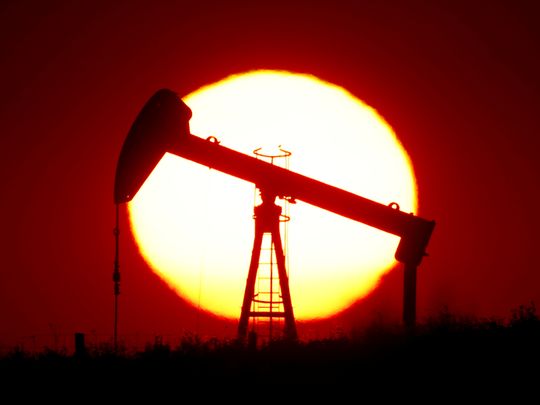
Singapore: Oil prices edged up on Friday and were on track to post a second straight annual gain, albeit a meagre one, in a year marked by tight supplies due to the Ukraine conflict, a strong dollar and weak demand from the world’s top crude importer China.
Brent crude futures climbed 44 cents, or 0.5 per cent, to $83.90 a barrel by 0138 GMT (5.38am UAE time) after settling 1.2 per cent down in the previous session.
US West Intermediate crude was at $78.88 a barrel, up 48 cents, or 0.6 per cent, after closing 0.7 per cent lower on Thursday.
Brent is set to close 2022 with a 5.76 per cent gain after rising 50.2 per cent in 2021. Prices surged in March to a peak of $139.13 a barrel, a level not seen since 2008, after Russia attacked Ukraine and sparked supply and energy security concerns.
The WTI is on track to rise 4.5 per cent in 2022 following a 55 per cent gain last year.
“This year has been an extraordinary year for commodity markets with supply risks leading to increased volatility and elevated prices,” ING analyst Ewa Manthey said.
“Next year is set to be another year of uncertainty, with plenty of volatility.” Oil prices cooled quickly in the second half this year as central banks across the world hiked interest rates to fight inflation and boosted the US dollar. That made dollar-denominated commodities a more costly investment for holders of other currencies.
Also, China’s zero-COVID restrictions, which were only eased in December, squashed oil demand recovery hopes at the world’s No. 2 consumer. While China is set to recover in 2023, a surge in COVID cases in the country and global recession concerns are clouding the commodities demand outlook.
“The recent easing of travel restrictions was expected to boost oil demand; however, the sharp increase in COVID cases in China has raised serious concerns over a potential global outbreak,” John Driscoll, director at consultancy JTD Energy Services, said.
Looking ahead on supplies, western sanctions will push Russia to divert more crude and refined products exports from Europe to Asia.
In the US, output growth in top oil-producing states has slowed despite higher prices. Inflation, supply chain snags and economic uncertainty have led executives to lower their expectations, the latest survey by the Federal Reserve Bank of Dallas found.











